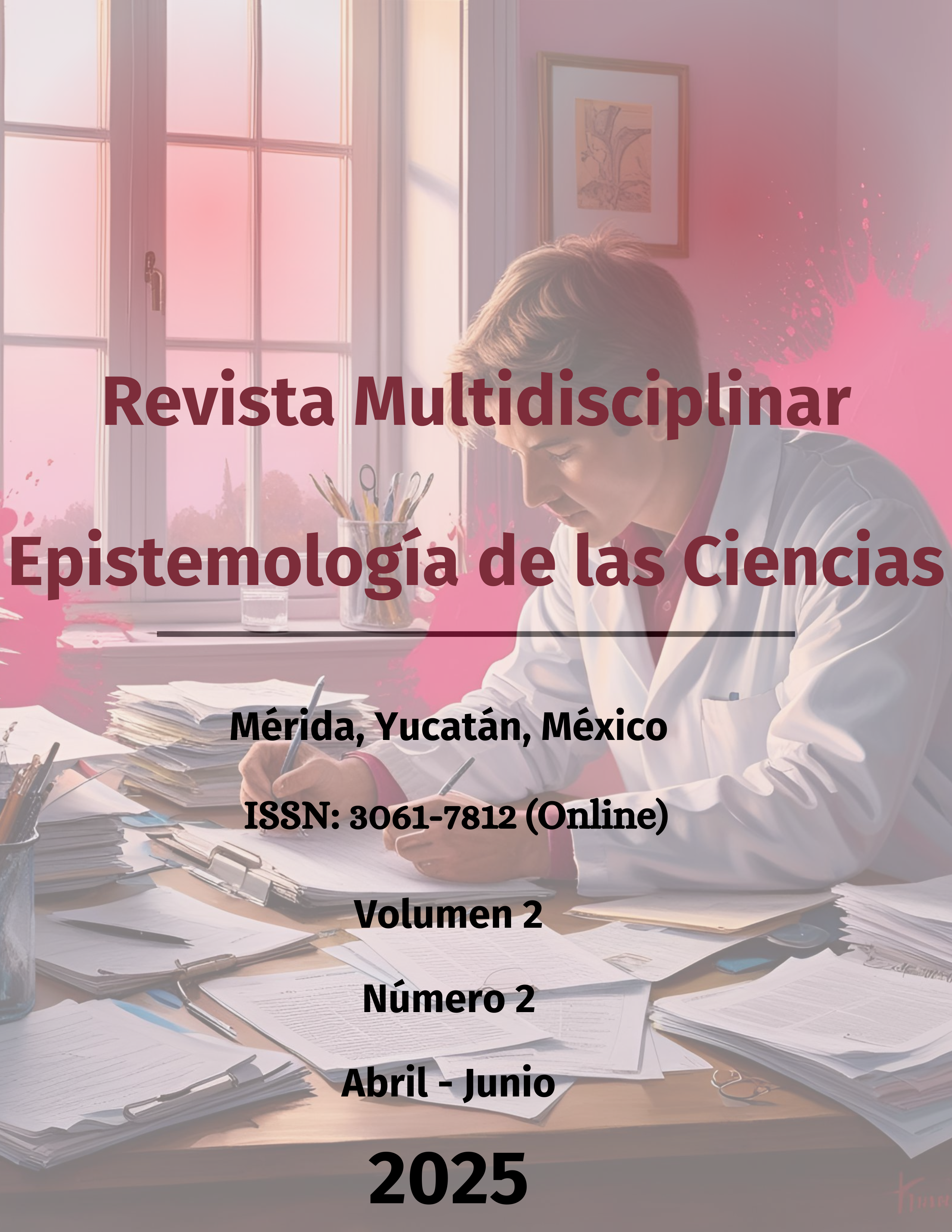Digital skills and female empowerment: analyzing the impact on business sustainability in Latin America
DOI:
https://doi.org/10.71112/mw9sbg90Keywords:
digital skills, female empowerment, digital inclusion, business sustainability, strategiesAbstract
This article analyzes and synthesizes effective, evidence-based strategies that reduce the digital skills gap among women entrepreneurs in Latin America, assessing how the digital dimension has impacted the strengthening and sustainability of their businesses. The results demonstrate that strategies for training and capacity building in digital skills, access to innovative technologies, and the development of support networks are important in contributing to their empowerment, enabling improved competitiveness and economic inclusion. These strategies have increased the operational effectiveness and market reach of their businesses, in addition to helping promote economic and social development in the region. However, challenges related to gender equity and access to digital education persist, requiring comprehensive public policies and longitudinal studies to maximize and evaluate their long-term effects. The use of coordinated approaches that combine technological education with social empowerment is imperative; this will minimize gender gaps and enhance business sustainability.
Downloads
References
Amri, M., Yang, J., Jessiman-Perreault, G., Haikal, A., Barrett, K., y Bump, J. B. (2024). Equidad e integración de la perspectiva de género en las políticas públicas: Protocolo de análisis exploratorio. PLoS ONE, 19(2), Article e0299124. https://doi.org/10.1371/journal.pone.0299124 DOI: https://doi.org/10.1371/journal.pone.0299124
Avolio Alecchi, B. (2022). Toward realizing the potential of Latin America’s women entrepreneurs: An analysis of barriers and challenges. Latin American Research Review, 57(2), 286–303. https://doi.org/10.1017/lar.2022.12 DOI: https://doi.org/10.1017/lar.2022.12
Canhoto, A. I., Quinton, S., y Brion, S. (2023). Opportunities and challenges of digital competencies for women tourism entrepreneurs in Latin America: A gendered perspective. Journal of Sustainable Tourism, 31(8), 1821–1839. https://doi.org/10.1080/09669582.2023.2189622 DOI: https://doi.org/10.1080/09669582.2023.2189622
Clunie, C., Villarreal, Y., Batista, M., Jaén, E., López-Cabrera, V., y Pinel, A. (2023). Pensamiento computacional: Estrategia clave para la inclusión digital de las personas mayores: Caso Betania. Congreso Nacional de Ciencia y Tecnología - Apanac, 133–140. https://doi.org/10.33412/apanac.2023.3925 DOI: https://doi.org/10.33412/apanac.2023.3925
Diniz, J. A., y Pozzebon, M. (2021). Employment and the gender digital divide in Latin America: A decomposition analysis. Telecommunications Policy, 45(6), 102166. https://doi.org/10.1016/j.telpol.2021.102166 DOI: https://doi.org/10.1016/j.telpol.2021.102166
Doytch, N., Ashraf, A., y McNeil, A. (2024). Digitalization and employment gender gaps during the COVID-19 pandemic: Evidence from Latin America and the Caribbean. IMF Working Papers, 2024(012), 1–38. http://dx.doi.org/10.5089/9798400263248.001 DOI: https://doi.org/10.5089/9798400263248.001
Estrada-Molina, O., Guerrero-Proenza, R. S., y Fuentes-Cancell, D. R. (2022). Las competencias digitales en el desarrollo profesional: Un estudio desde las redes sociales. Education in the Knowledge Society (EKS), 23, Article e26763. https://doi.org/10.14201/eks.26763 DOI: https://doi.org/10.14201/eks.26763
García-Pérez, A., y Martínez, L. (2021). Gender inequality in Latin America: A multidimensional analysis based on ECLAC indicators. Sustainability, 13(23), 13140. https://doi.org/10.3390/su132313140 DOI: https://doi.org/10.3390/su132313140
Humanities and Social Sciences Communications. (2024). Digitalisation and poverty in Latin America: A theoretical review with a focus on education. Humanities and Social Sciences Communications, 11, 369. https://doi.org/10.1057/s41599-024-03692-0 DOI: https://doi.org/10.1057/s41599-024-03692-0
López, M., y Torres, R. (2021). Gender digital divide and education in Latin America: A literature review. Education Sciences, 11(12), 804. https://doi.org/10.3390/educsci11120804 DOI: https://doi.org/10.3390/educsci11120804
Maratuech, R., Gutarra, G., y Scarsi, B. (2021). Empoderamiento de mujeres con niños/as menores de cinco años y seguridad alimentaria - Distrito de Huacrapuquio. Prospectiva Universitaria, 15(1), 11–16. https://doi.org/10.26490/uncp.prospectivauniversitaria.2018.15.847 DOI: https://doi.org/10.26490/uncp.prospectivauniversitaria.2018.15.847
Mateus, D., Mangue, M., y Ortiz-Repiso, V. (2022). La alfabetización digital de mujeres hacia la inclusión digital y el cumplimiento de la agenda 2030: Una comparación entre las políticas públicas de inclusión digital en Mozambique y España. Perspectivas em Ciência da Informação, 27(2), 320–354. https://doi.org/10.1590/1981-5344/40004 DOI: https://doi.org/10.1590/1981-5344/40004
Mendoza, J., y Otros autores. (2024). Responsabilidad social corporativa y sostenibilidad en las cooperativas de ahorro y crédito del Ecuador. Revista San Gregorio, 1(57), 104–125. https://doi.org/10.36097/rsan.v1i57.2715 DOI: https://doi.org/10.36097/rsan.v1i57.2715
Neme-Chaves, S. R., Forero-Molina, S. C., Garzón Medina, C., y Linero Bocanegra, J. P. (2024). Desarrollos y perspectivas del retail: Estudio bibliométrico en el periodo 2017–2023. Revista Universidad y Empresa, 26(46), 1–31. https://doi.org/10.12804/revistas.urosario.edu.co/empresa/a.12956 DOI: https://doi.org/10.12804/revistas.urosario.edu.co/empresa/a.12956
Romero, R., Castellanos, T., Ruano-Arcos, L., Sánchez-Álvarez, J., y Ordóñez-Tovar, I. (2022). Ventaja competitiva de las PYMES hortofrutícolas en Colombia: El rol de la innovación abierta y la orientación emprendedora. Revista de Investigación Desarrollo e Innovación, 12(2), 171–184. https://doi.org/10.19053/20278306.v12.n2.2022.15256 DOI: https://doi.org/10.19053/20278306.v12.n2.2022.15256
Soriano Torres, L. E. (2024). Innovación tecnológica en destinos turísticos inteligentes: El impacto de la IA y el IoT en la experiencia del visitante. Ciencia Latina Revista Científica Multidisciplinar, 8(5), 9748–9757. https://doi.org/10.37811/cl_rcm.v8i5.14353 DOI: https://doi.org/10.37811/cl_rcm.v8i5.14353
Ufarte Ruiz, M. J., y Murcia Verdú, F. J. (2024). Una aproximación al mapa sobre la investigación en inteligencia artificial aplicada al periodismo en Europa (2013–2023). Revista Latina de Comunicación Social, 82, 1–18. https://doi.org/10.4185/rlcs-2024-2256 DOI: https://doi.org/10.4185/rlcs-2024-2256
Vargas, M., Román, B., y Caamal, M. (2024). Impacto del capital humano en el desempeño de ventas: Un estudio de caso en la nueva normalidad. Revista de Psicología y Ciencias del Comportamiento de la Unidad Académica de Ciencias Jurídicas y Sociales, 15(1), 7–25. https://doi.org/10.29059/rpcc.20240601-169 DOI: https://doi.org/10.29059/rpcc.20240601-169
Downloads
Published
Issue
Section
License
Copyright (c) 2025 Multidisciplinary Journal Epistemology of the Sciences

This work is licensed under a Creative Commons Attribution 4.0 International License.











